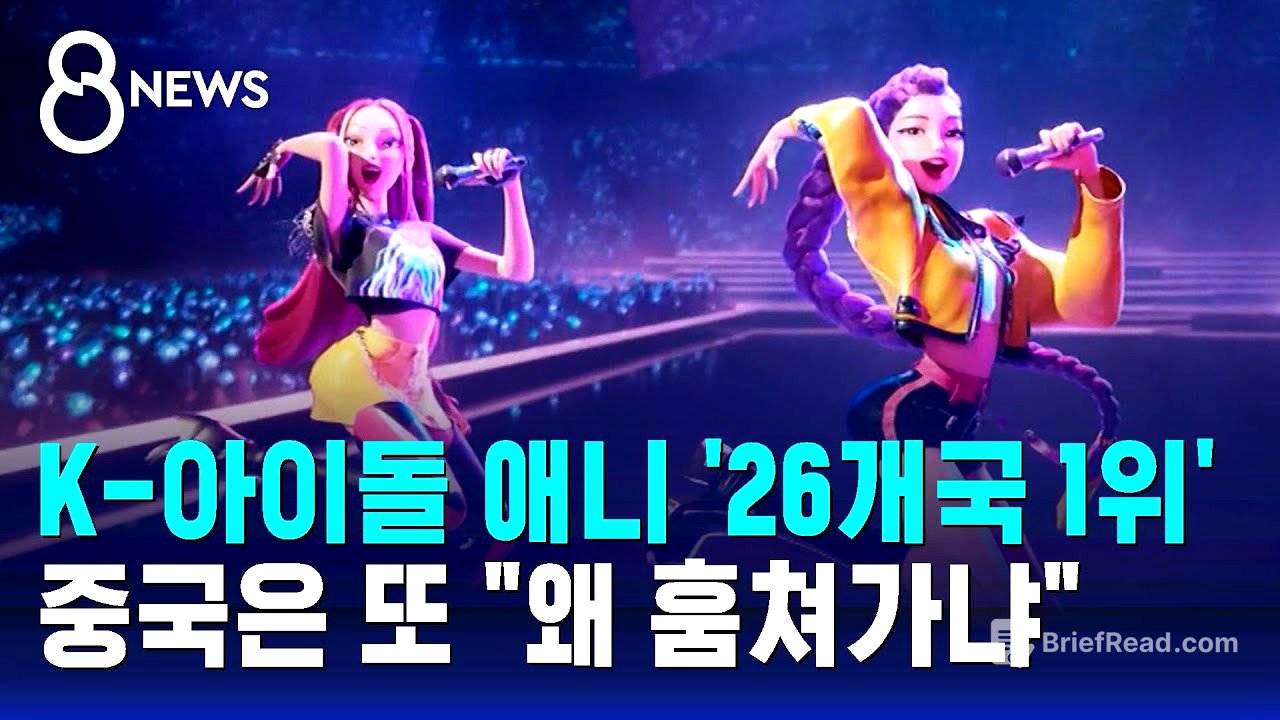TLDR;
The animated series "Exorcist Sake," featuring a K-pop idol group, has achieved global success on Netflix, topping charts in 26 countries. Its popularity stems from catchy music, detailed incorporation of Korean culture and landscapes, and a realistic portrayal of the K-pop industry. The animation includes notable Korean landmarks, traditional swords, and everyday scenes of idol life. Despite its success, the series has faced unfounded claims of cultural appropriation from some Chinese viewers, which have been refuted.
- Global success of "Exorcist Sake" animation on Netflix.
- Incorporation of Korean culture, landscapes, and K-pop reality.
- Music production by Teddy and participation of Twice.
- Response to claims of Chinese cultural appropriation.
Global Popularity of "Exorcist Sake" [0:00]
An American-produced animation featuring a K-pop idol group called Exorcist Sake is gaining worldwide popularity after being released on Netflix on the 20th. The series, which revolves around a pop girl group protecting world peace, has topped the charts in 26 countries, including Korea, the United States, the United Kingdom, and Japan. Its success is attributed to its engaging music and the detailed incorporation of Korean traditional culture and landscapes.
Incorporation of Korean Culture and Landscapes [0:41]
The animation incorporates Korean elements such as Namsan-teo and Bukdeung, along with black swords and moon swords modeled after Joseon Dynasty swords used to fight evil spirits. It also realistically portrays the lives of K-pop singers, including scenes of idol groups eating kimbap and ramen before performances. The detailed integration of Korean culture is a significant factor in the show's positive reception.
Music Production and Voice Acting [1:05]
Teddy, a well-known K-pop producer, contributed to the music production, ensuring high-quality sound. The popular group Twice sang the title song for the main characters. Actor Ahn Seop voiced the leader of the Lion Boys, while Lee Byeong-won voiced the villain Guima. The series is directed by Korean-Canadian director Meggi Kang.
Response to Cultural Appropriation Claims [1:39]
Following the animation's popularity, some Chinese viewers baselessly claimed that the work stole Chinese culture due to the Korean elements it featured. Professor Seok Yeong-deok criticized these claims, pointing out the hypocrisy of illegally watching the show while simultaneously attempting to suppress it.









